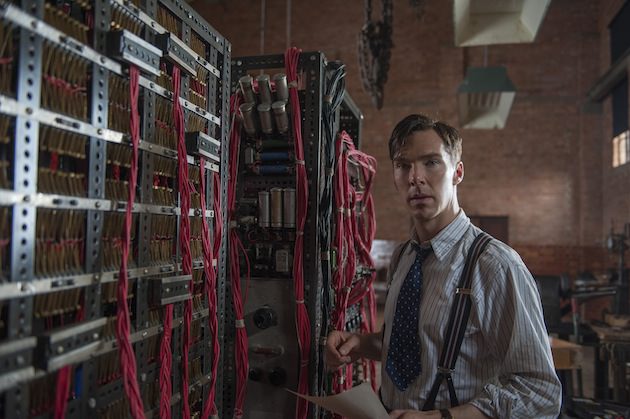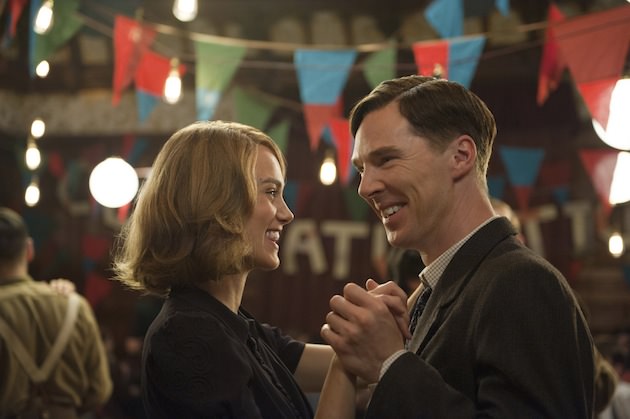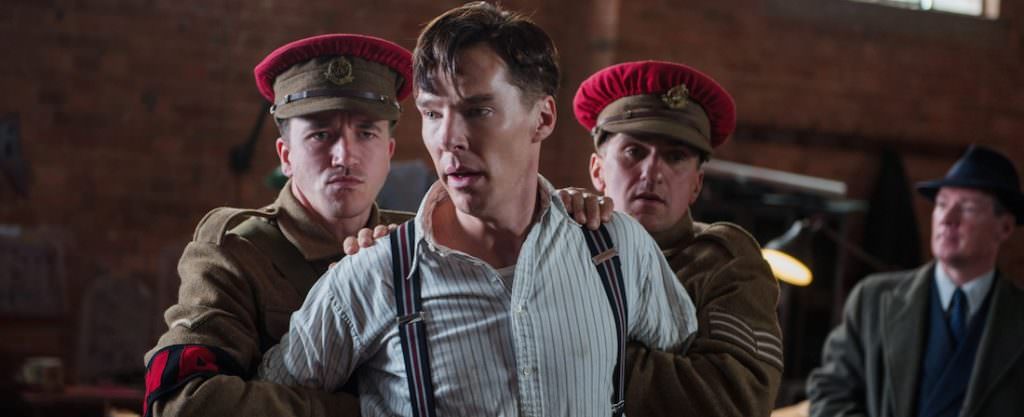Unbroken & The Imitation Game Editor Billy Goldenberg
In 2012, Billy Goldenberg won an Oscar for his editing work on Argo. A thrilling moment, of course, but perhaps in this case it was slightly dulled by the fact that Goldenberg's odds for a win were a mite better than everyone else in the category; he and Dylan Tichenor were also up for Zero Dark Thirty.
There is a chance that Goldenberg could enhance his odds again this year, although he'd probably rather not even think about it. His work on Morten Tyldum's The Imitation Game and Angelina Jolie's upcoming Unbroken, which he co-edited with Tim Squyres. These two films tackle, from vastly different angles, World War II, and both will be heavily involved come Awards Season. We spoke with Goldenberg about his work on Tyldum's film about Alan Turing's efforts to the break Germany's Enigma code, how difficult it is to make a film about a genius, and his incredible streak of great work.
It’s very tricky business trying to show genius on screen. The oft-cited example if A Beautiful Mind, with the equations coming out at the viewer. Just this year we’ve had two films about British geniuses, yours and The Theory of Everything. What was the idea behind showing Turing’s brilliance here?
We wanted to stay away from things that had been done before, you know, throwing numbers up on the screen or doing anything that’s imposing something on the film. Fortunately for us, we had Benedict, and we let his performance get us inside the head of a genius. He’s such an intelligent actor, so we were careful to let his work go as uncut as we could. Take the scene when he’s being interrogated by Detective Nock, we have these incredibly long takes of him where you’re able to see what goes on in his eyes. I was trying to let him do his job.
You do get a sense in this film of a character who’s really, really thinking.
Yes, in that scene where he’s figuring out the Christopher machine, making those drawings, putting the individual drawings up on the bulletin board, that part took us into his thought process. Again, this was all done through moments in Benedict’s performance.


Is there ever a time for the tricks we’ve come to expect that signal to us, ‘Genius at Work’?
The more I edit, the longer my career goes on, the more I realize there’s no trick that hasn’t been done, and it felt like at the time that it was a much more organic way to experience this by doing it through his eyes, to not impose anything. None of those, ‘Oh here comes a moment where they tell us how smart he is.’ It was a conscious decision to make it much more organic. And we also learned about his mind by how he reacted to people


This is the third movie you’ve done recently that involved espionage and intelligence and lives on the line, with your Academy Award winning work on Argo and your work on Zero Dark Thirty.
There were similarities to Argo in that we were playing with tone, we were careful about mixing comedy and drama, with mixing a human story, a spy thriller, and a human drama with comedic elements. There were similarities in Argo, also, in trying to make the comedy feel like it’s on the same bandwidth with the rest of the film. We wanted to make Alan's awkwardness and unevenness organic. And similar to Argo, we had three storylines in The Imitation Game. In Argo we had the CIA in Washington, what was happening in Iran and Hollywood. In The Imitation Game, we were showing Alan’s life before, during and after the war, and combining all of those elements seamlessly was hard.
How so?
To move the narrative forward, we realized we had to move some sections around. The script was never in chronological order, anyway, but it was in a slightly differently chronology, and things felt a little less motivated, a little more arbitrary. So in talking to Graham [Moore, the screenwriter], I don’t think he ever found the perfect place for some of these scenes, and he felt there was going to be more work to do in the editing process, and there was.
So things feel differently once they’re being filmed then they did while reading it on the page?
When scenes are laid out, they are often different then they were on the page. The film takes on a life of its own, so we found that things felt a little less motiviated then they needed to be, so we moved some things around and it made a big difference. For example, when we first meet young Alan, we moved that to later in the film, so we could get our 30 and 40-year old Alan first, and that way we could root people in his situation, in his challenge. We felt breaking it up was hurting the narrative. They were really just subtle shifts.
The Imitation Game is also very shifty in how there’s this incredible narrative momentum carrying you towards them trying to break the Enigma code, but then you find out that’s not the whole story.
It’s such a great story, the fact that this giant event took place that not very many people knew about, which was similar to Argo and Zero Dark Thirty. It’s scary to think about; a few men and women in a room and what they had to do.
Zero Dark Thirty, Argo and The Imitation Game have these great, sprawling casts. How does that effect your process when you’ve got a half dozen or more crucial characters you need to focus on?
Editing ensemble films present different challenges, luckily for me in all three of those films they were incredibly well cast, and then I had the ability to enhance things to try and really highlight certain moments, as opposed to a lot of times when your B and C characters aren’t as strong, and you have to figure out ways to make it work. In these three films, they were just so well cast. It just makes my job more fun, I can make things go from very good to great, instead of just making it work.
Who jumps out at you, aside from Cumberbatch.
Like Mark Strong, from Zero Dark Thirty, and then he’s cast in The Imitation Game and I was really excited, because I knew how great he was. Having them all together really raises their game. He was originally going to play Denniston, but then they cast Charles Dance, and then they switched the roles around.
Is there a specific sequence you cut in The Imitation Game that you feel partial to?
I really like and am satisfied with this one scene, which encompasses a lot of what’s going on in the film. It’s the long sequence during the interview between Detective Nock and Alan, and Alan talks about what the Imitation game means, which turns out to be the Turing test, which then leads us into them trying to break the Enigma code, and everything that happens after they do. The tragedy of what comes speaks to so many of the great themes of the movie, especially that interview scene where Alan’s talking about being different, and the movie celebrates people being different, and not fitting in, that’s the theme of that scene and the movie. And, this scene feeds into the spy thriller aspect, it’s a 25-minute sequence that really gets at the heart of this film. Benedict is so wonderful at the end of that scene. It’s this resigned feeling of, 'We have to continue, but we can’t save everybody.' When I read the screenplay, it was so great, and when I knew Benedict was going to do the movie, I knew I had to do the movie. It was one of those stories that need to be told in a big way, and with this actor, this screenplay and this director, everyone wanted to be involved. It’s like before I got the book for Seabiscuit, you were like come on, really, did that really happen?
Your next film revolves around the National Football League and the concussion epidemic.
Yeah, the next film is Will Smith playing the gentleman who discovered that brain diseases that NFL players were getting were coming from multiple concussions. It’s about his trying to make it public. It’s a whistle blower type of movie, similar to The Insider, and his character is constantly being crushed by the NFL because they’re in denial about the story. There’s already been a couple of documentaries, and there’s another being made right now, it’s something you can’t stop, it’s going to become more and more in the public eye.
How much more pressure do you feel when you’re working on a film about real people?
You feel an incredibly sense of responsibility to do justice to these peoples stories, if thye’re not alive, their family is, and you want to make sure that the people who knew them are satisfied. I put extra put extra pressure on myself. It’s living history, too. Everything was constantly changing when I was doing this concussion film, it’s a constantly evolving story. It’s fascinating to work on a film that more and more things come to light.
What can you tell us about Unbroken?
I co-edited the movie, and hey, if I’m known as that guy who does films about the little known people who do huge things in history, I’m fine with it. Angelina Jolie does a great job, it’s just incredibly well executed by everyone, it just looks beautiful, it’s just a really fantastically interesting story.




